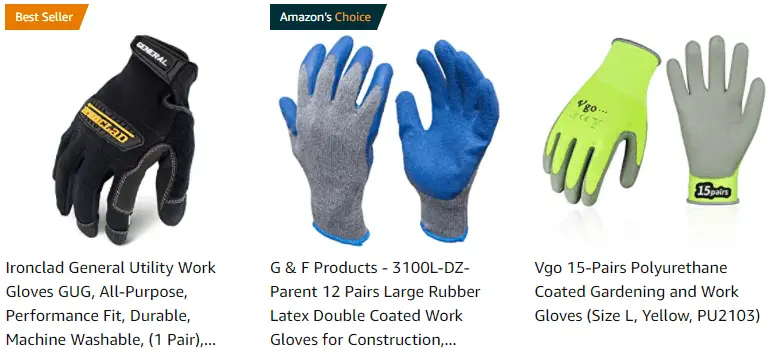Always wear the proper glove for the task at hand. Maintain a supply of good-condition gloves of the following types, and add special purpose gloves as needed.
- Heavy Work Gloves: for handling building materials and general interior and exterior wear.
- Jersey or Heavy Cotton Gloves: for yardwork and general wear.
- Rubber-Dipped Masonry Gloves: for working with concrete and mortar.
- Disposable Plastic Gloves: for painting and light finishing and for handling hardwoods, like cherry, that are sensitive to oils in skin.
- Neoprene Rubber Gloves: for working with caustic chemicals, such as chemical paint stripper, and for working around electrical current.
- Household Type Rubber Gloves: for painting and finishing and for working with cleansers.
YouTube Video Tip: Hit the gear button to speed up the playback to watch the video faster.
The Handiest Work Gloves
Subscribe to Wood.Work.LIFE.
I really went all out on this one, looking at everything from the cheapest nitrile glove you can find, to nitrile gloves that run $200 a box,
5 Woodworking Shop Essentials. (DON’T RUN OUT OF THESE!)
Subscribe to Steve Ramsey – Woodworking for Mere Mortals
Recommended Posts:





